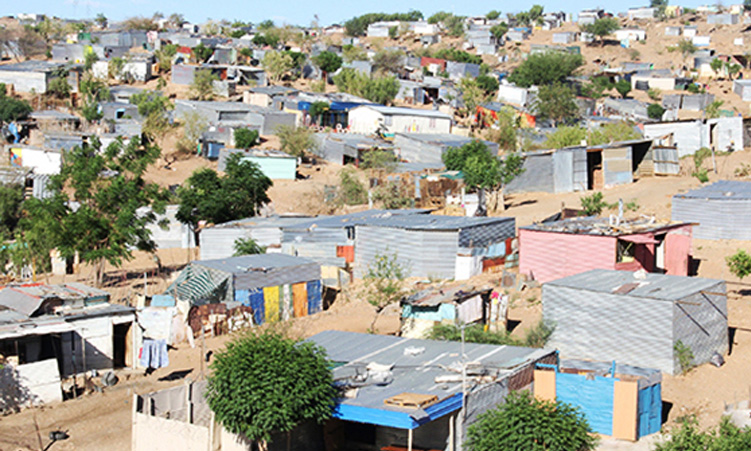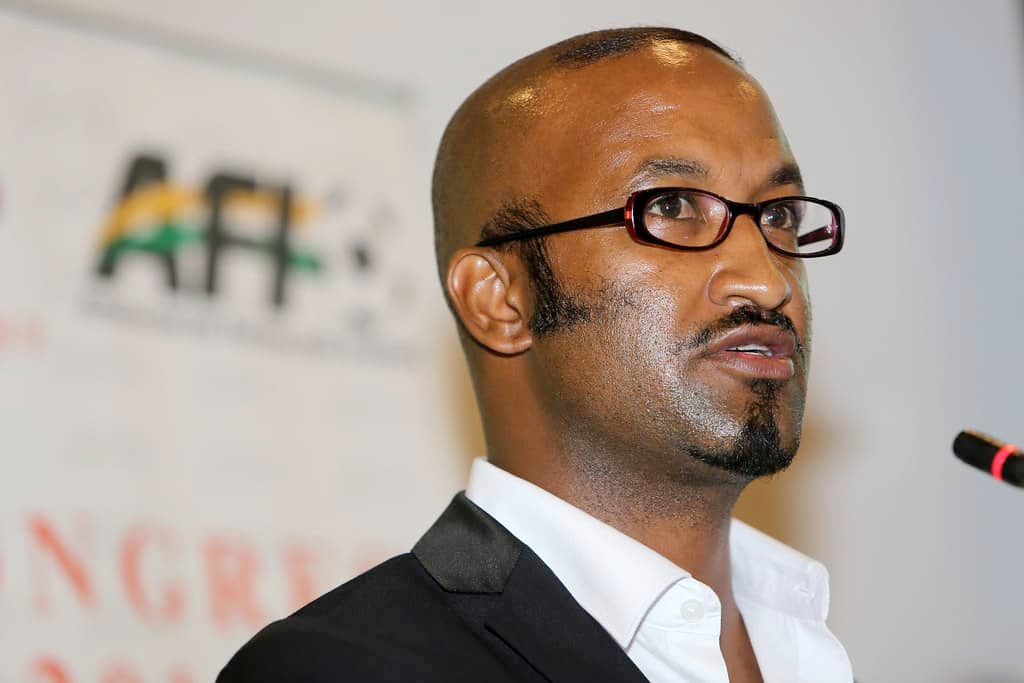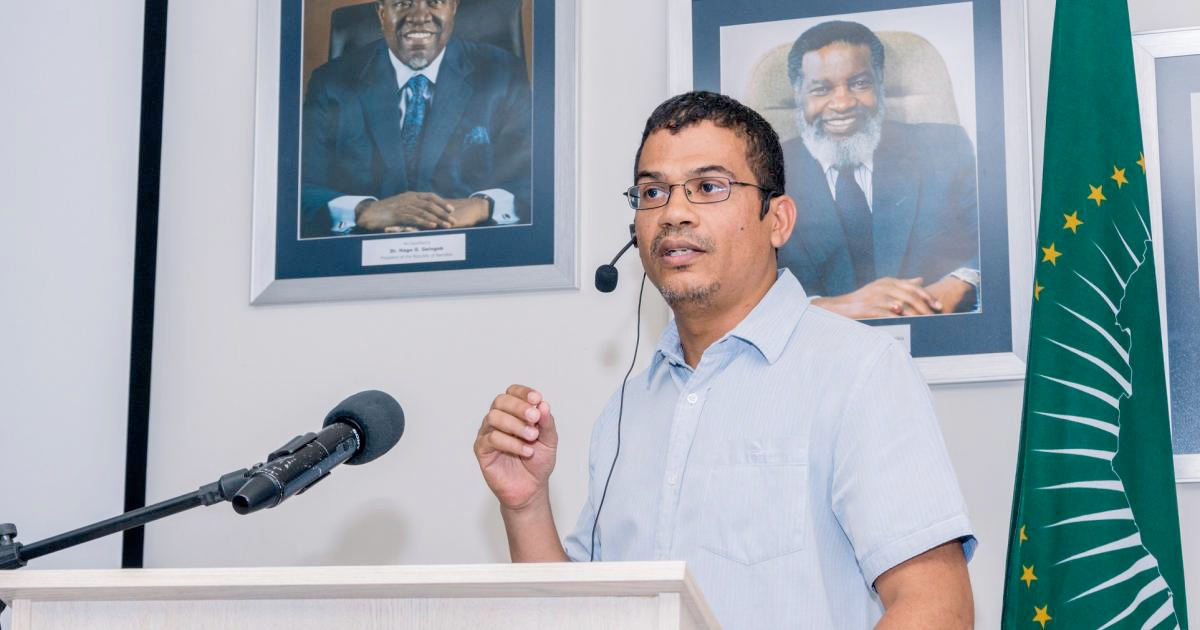President-elect Netumbo Nandi-Ndaitwah and Swapo are promising to eliminate half of Namibia’s shacks by 2029, provide free tertiary education, and reduce Namibia’s imports by 80%.
This plan is outlined in the Swapo manifesto implementation plan for 2025 to 2029, which includes promises to pump N$7 billion into building sport stadiums, N$6 billion for youth employment projects and to provide free tertiary education.
The manifesto implementation plan was discussed by party leaders and technocrats last weekend.
Part of it touches on housing. The last study done by the Shack Dwellers Federation of Namibia in 2018 states that 995 000 people are living in shacks in urban centres of the country. The federation also said there are 308 informal settlements in urban areas, with about 228 000 shacks.
Nandi-Ndaitwah and her team are now planning to formalise and service 50% of all informal settlements as part of its mission to tackle the nation’s deepening housing crisis.
“To ensure equitable access to land, housing and sanitation services,” the document says.
In the manifesto implementation plan, Nandi-Ndaitwah says: “When I say things, I know they are workable, they are doable, and I make sure they are implemented. When I say something, I mean it and I follow up and show the implementation.”
The ruling party estimates that an initial investment of N$2.5 billion is needed to jumpstart this project.
This promise comes six years after former Swapo president Hage Geingob declared that the sight of shacks “offended him” and vowed to eradicate them within five years.
Despite that commitment, informal settlements have continued to expand, housing hundreds of thousands of Namibians in dire conditions. Former president Hifikepunye Pohamba also promised to build 148 000 houses as part of the mass housing programme but failed. His successor, president Geingob, stopped the project.
Nandi-Ndaitwah says there is no better time to be Namibian than now, because the future belongs only to those who are willing to work.
“I firmly believe that when we put our collective efforts together, embrace our diversity and collaborate, we shall successfully implement the Swapo manifesto plan for a brighter future, for all Namibians,” she says.
Nandi-Ndaitwah says the aforementioned principles underpin the strategic focus for the next four years, in line with the manifesto.
Swapo’s latest strategy includes an aggressive mass formalisation campaign, beginning with a pilot project in Windhoek, Walvis Bay, Rundu, Keetmanshoop, and Oshakati.
The first step will be identifying informal settlements for servicing and conducting community consultations by May. The second step is to recruit engineers and project managers by July before handing over completed mass housing units.
The Shack Dwellers Federation of Namibia on its website says before independence, informal settlements were rare in the country, but since 1990, rural to urban migration and urbanisation have radically transformed Namibia’s cities.
“Today we must acknowledge the fact that more than 40% of Namibia’s overall population and around 80% of its urban population are currently living in informal settlements or backyard shacks. Upgrading these settlements to well-serviced and integrated neighbourhoods poses a daunting challenge to the Namibian government and Namibian society.”
Swapo’s N$85.7-billion implementation plan focuses on economic growth, social equity and job creation.
In terms of agriculture, the aim is to enhance food security by cutting imports by 80%, backed by N$2.5 billion for agri-infrastructure and value chains.
Infrastructure plans include launching a national airline by 2026 through a public-private partnership.
Key investments include N$7 billion for sport facilities, N$1.7 billion annually for youth empowerment, and N$25 billion over five years for education, ensuring free tuition at government institutions by 2027.
The creative industry will receive N$2.04 billion, while healthcare will see N$3 billion annually for rural expansion and universal health coverage. Housing and sanitation plans, backed by N$18.5 billion, aims to build 50 000 houses and improved facilities for 100 000 people by 2029.
Swapo says the plan, funded through fiscus and public-private partnerships, aims to drive economic diversification, reduce unemployment, and create 250 000 jobs, reinforcing macroeconomic stability and sustainable growth.
Swapo secretary general Sophia Shaningwa is quoted in the document as saying the prioritisation and integration of this implementation plan into the National Development Plan, government budgeting, and operations will not be compromised.
“This commitment ensures that our strategic initiatives are seamlessly aligned with national frameworks, facilitating coordinated and efficient execution. The Swapo manifesto implementation plan committee will play a crucial role in overseeing the mobilisation of resources and the reporting of our progress.”
Shaningwa says the committee will ensure that the N$85.7 billion committed to the priority areas will be utilised effectively and transparently, maximising the impact on economic growth, social development and environmental sustainability.
“This plan represents a collective effort to focus on strategic initiatives that will propel Namibia forward. By prioritising these projects, we aim to address critical areas that will contribute to the overall advancement of our nation.”
Stay informed with The Namibian – your source for credible journalism. Get in-depth reporting and opinions for
only N$85 a month. Invest in journalism, invest in democracy –
Subscribe Now!










